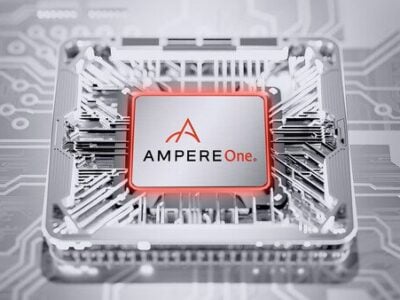
ARM has filed a lawsuit against one of its largest customers, Qualcomm, over the use of licenses for its technology following the acquisition of high performance chip designer Nuvia
The lawsuit in the US District Court for the District of Delaware covers the breach of certain license agreements with ARM and trademark infringement.
ARM says that its licenses to Nuvia finished when Nuvia was acquired by Qualcomm in March this year, Qualcomm is itself a major licensee of the ARM technology at the instruction set level for its Snapdragon line of processors and accelerators that power billions of smartphones and other industrial equipment. Nuvia similarly had an architectural license, but priced at a lower level for a startup.
- Qualcomm buys data centre chip unicorn Nuvia to take on Apple
- Nuvia raises $240m to build ARM data centre chip
- Apple makes ground in legal case against iPhone chip designer
ARM is seeking to destroy certain Nuvia designs and prevent them using the ARM trademark just test chips are scheduled to be delivered to potential customers.
The man behind Nuvia, Gerard Williams III, had been Apple’s chief CPU architect for nearly a decade, working on high performance ARM designs, before leaving Apple and forming Nuvia early in 2019. He was sued in 2020 by Apple over intellectual property issues.
The deal with Nuvia was aiming to bring a version of Snapdragon running the Windows operating system for PCs to take on Apple’s M1 and M2 processors.
“The future of the PC industry is modern Arm-based architectures and Snapdragon compute platforms will continue to lead and define the future of productivity, education, and connected entertainment,” said Cristiano Amon, president and chief executive officer at Qualcomm at the Consumer Electronics Show this year. “Our early investments, collaboration with Microsoft and the recent acquisition of NUVIA uniquely positions Qualcomm Technologies to drive this industry wide transition.”
However the lawsuit comes as Qualcomm is reported to be looking at a consortium to buy ARM following the collapse of the deal for Nvidia to buy ARM.
- Apple boosts transistor count in 5nm M2 chip
- Apple goes to 2.5D for 114bn transistor M1 Ultra
- How the data centre moved to custom chips
- Qualcomm raises prospect of an ARM consortium – report
“ARM is filing this claim to protect ARM, our partners, and the unparalleled ecosystem we have built together,” it said in a statement. “ARM and its partners have invested billions of dollars to create industry-leading intellectual property. Because Qualcomm attempted to transfer Nuvia licenses without ARM’s consent, which is a standard restriction under ARM’s license agreements, Nuvia’s licenses terminated in March 2022. Before and after that date, ARM made multiple good faith efforts to seek a resolution. In contrast, Qualcomm has breached the terms of the ARM license agreement by continuing development under the terminated licenses. ARM was left with no choice other than to bring this claim against Qualcomm and Nuvia to protect our IP, our business, and to ensure customers are able to access valid ARM-based products.”
“ARM takes pride in our role as innovator of the world’s most critical semiconductor IP and the billions of devices that run on ARM,” it said. “These technological achievements have required years of research and significant costs and should be recognized and respected. As an intellectual property company, it is incumbent upon us to protect our rights and the rights of our ecosystem. We will work vigorously to protect what is rightfully ours and we are confident that the courts will agree with us.”
Qualcomm has been approached for comment.
Related articles
- SiFive takes on ARM with CEO from Qualcomm
- ARM tweaks its X1 core for the desktop
- Qualcomm unveils AI-enabled AR platform
- Qualcomm taps German video AI for mobile chips
Other articles on eeNews Europe
- Power limits the trillion transistor era say Intel, Tesla
- Quantum gyroscope for satellite stability
- Photonic interface for superconducting quantum processors
- European tech in Intel’s RISC-V Pathfinder dev kit
- TinyTapeout boost for open source silicon chip design
- BigFAT specification breaks 4GB per file barrier
 If you enjoyed this article, you will like the following ones: don't miss them by subscribing to :
eeNews on Google News
If you enjoyed this article, you will like the following ones: don't miss them by subscribing to :
eeNews on Google News



